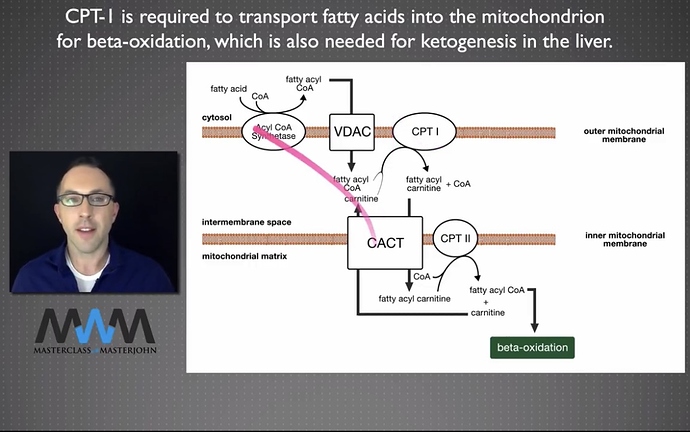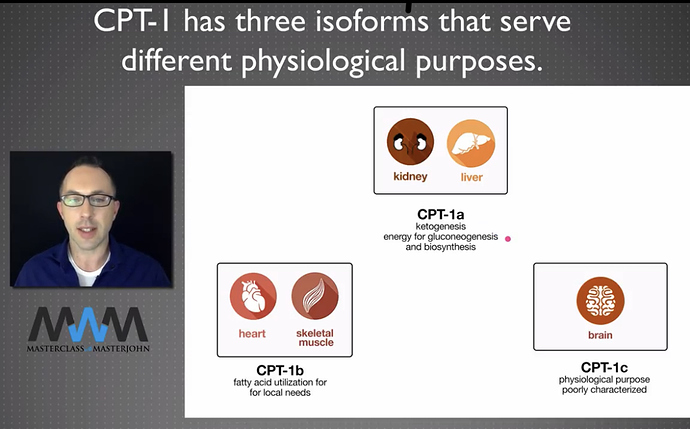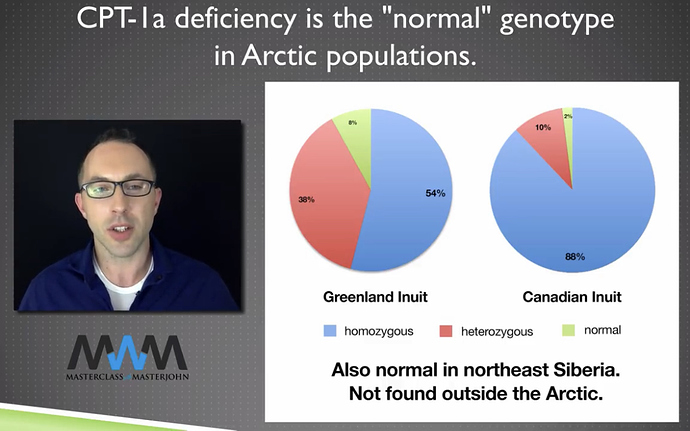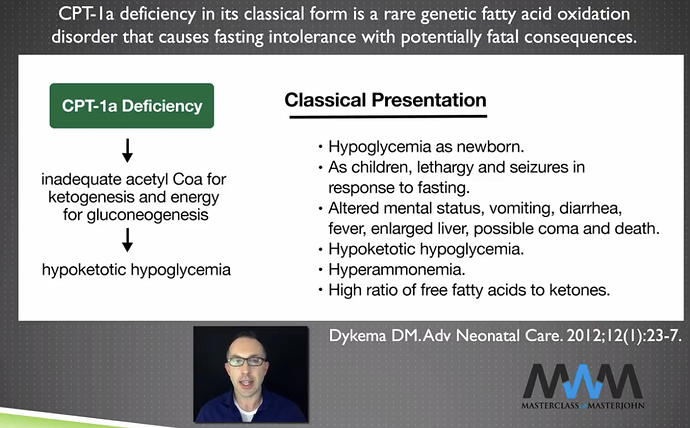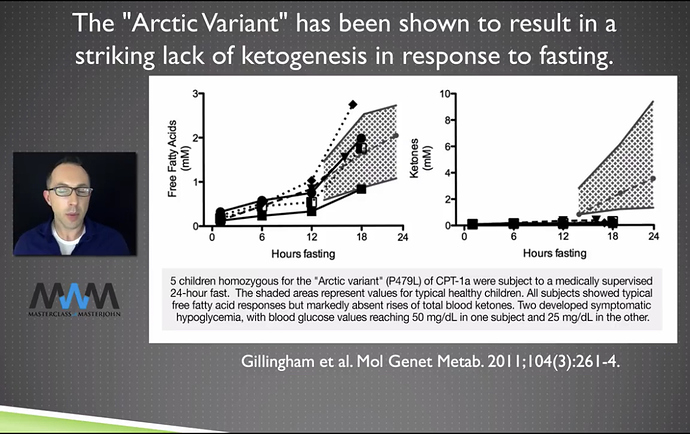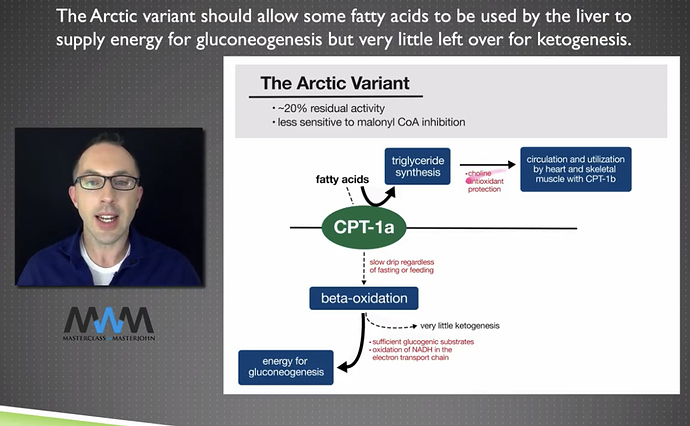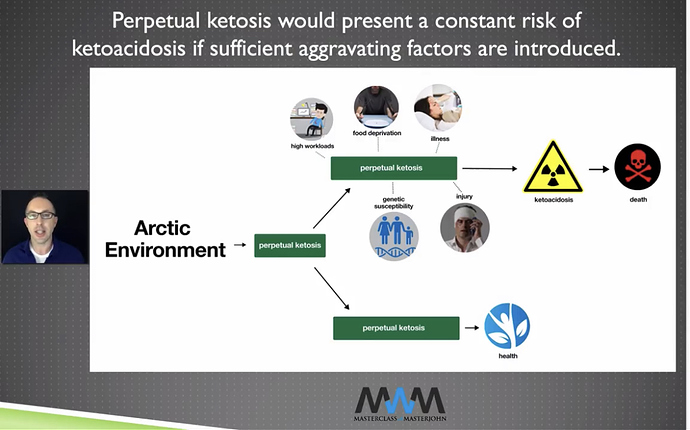Ever wonder why; when your fully fat adapted why your ketones are so low?
Hint: Watch the entire video before you go into a tailspin?
“…Why were the Inuit never in ketosis, despite their traditional high-fat diet? CPT-1a deficiency known as “the Arctic variant” is only found in the Arctic and it is nearly universal in the Arctic. …”
Inuit Genetics Show Us Why Evolution Does Not Want Us In Constant Ketosis: “…Why were the Inuit never in ketosis, despite their traditional high-fat diet? That question is answered in this lesson. The answer provides a stunning example of human evolution and makes it clear that evolution does not “want” us in a constant state of ketosis. CPT-1a deficiency is a genetic disorder in the ability to make ketones and to derive energy from fatty acids needed to make glucose during fasting. In its severe form, it is extremely rare, dangerous, and fatal if not treated with frequent feeding and often a high-carbohydrate, low-fat diet. A much more mild form of CPT-1a deficiency known as “the Arctic variant” is only found in the Arctic and it is nearly universal in the Arctic. It causes a serious impairment in the ability to make ketones, dramatically raises the risk of developing hypoglycemia while fasting, and causes a three-fold increase in infant mortality. Yet virtually everyone native to the Arctic has it and it is usually asymptomatic. What is utterly stunning about this is that this variant took hold of the Arctic in one of the strongest selective sweeps ever documented in humans. This means that evolution judged this variant as better suited to the Arctic environment than almost any human gene has ever been suited to any environment. How on earth can an impairment in fat metabolism be well suited to an environment that forces a high-fat diet on its inhabitants? Watch the full video to find out. …” …More

